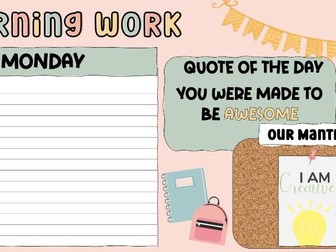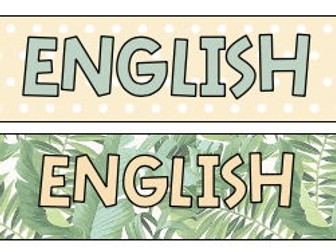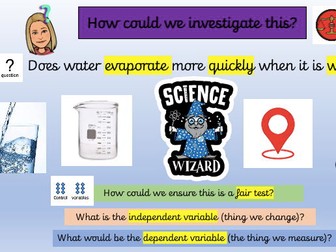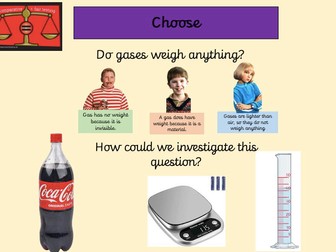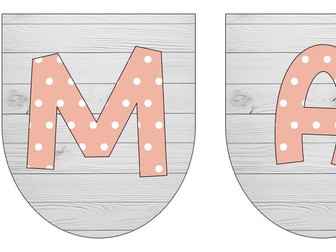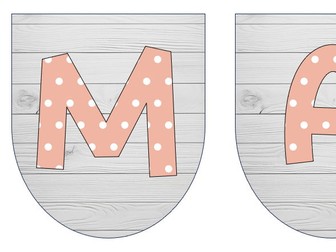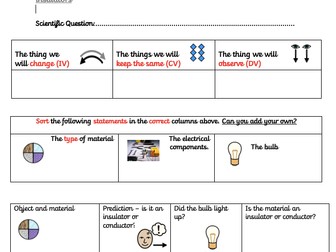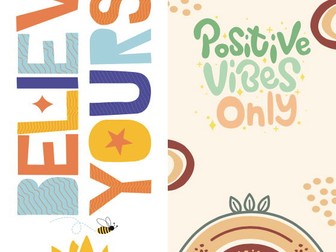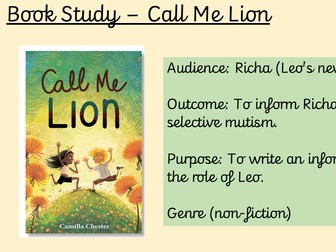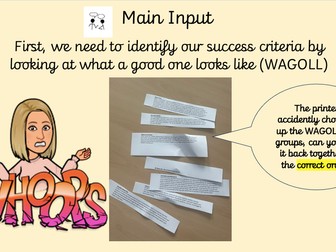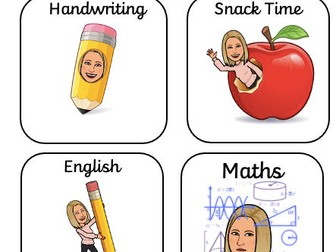Year 4 - Water Evaporation Investigation
<p>Step into a world of wonder with our captivating lesson presentation for Year 4 science lesson! Designed in a child-led and engaging manner, this resource sets the stage for an exciting investigation into the question ‘Does water evaporate more quickly when it is warmer?’.</p>
<p>The adventure begins with a magical twist from ‘Wizard Wizalot’, who can make water disappear! Students are hooked from the start as they embark on a journey to create their own experiment, using prompted pictures for support, to observe and investigate evaporation rates over time.</p>
<p>After setting up the experiment, students will use their critical thinking and communication skills as they work together in groups to solve concept cartoons. And to add a sprinkle of fun, friendly characters from ‘Charlie and the Chocolate Factory’ make an appearance, making this lesson a memorable and enjoyable experience for all. My students loved this lesson! Simple yet very effective.</p>
Year 4 - Science Investigation Misconception
<p>Dive into the world of science exploration with our engaging lesson presentation designed to support children in writing a scientific investigation! This full lesson is scaffolded to guide students through investigating the common misconception: ‘Does gas weigh anything?’</p>
<p>Worksheet and presentation attached.</p>
undefined
Investigation work sheet - conductors and insulators YEAR4
<p>Editable investigation work sheet which is EAL friendly.<br />
Scientific question: investigate which materials are electrical conductors and insulators?</p>
Page Pal Bookmarks
<p>Fall in love with reading all over again with our delightful bookmarks!</p>
<p>Perfect bookmarks for Primary School Children.</p>
Call Me Lion - Write an informal letter.
<p>This is a 3 week teaching unit using the book ‘Call Me Lion’ by Camilla Chester as a writing stimulus.</p>
<p>Outcome: Write an informal letter in role as Leo, who has selective mutisim, using emotive vocabulary.</p>
<p>Our half termly theme was based on the SDG ‘reduced inequalities’ and this unit fitted in perfectly by celebrating inclusion, friendship and empathy. Alongside this, we looked at the biography by Stevie Wonder (uploaded in another resource). This really helped the children develop empathy and compassion for others.</p>
<p>This teaching sequence follows the T4W scheme -<br />
Imitate (WK1) where children immerse themselves in the genre.<br />
Innovate (WK2) shared write looking at a high-quality example by tweaking the WAGOLL.<br />
Independent (WK3) the children apply all the skills they have learnt.</p>
<p>A wonderful teaching unit, which my children thoroughly enjoyed and it produced some high-quality writing. It is a great book that can promote the themes of morality.</p>
Autobiography Writing Unit Year 4
<p>High-quality resources focused on the theme of ‘One World’ and ‘Equality’. We taught this along side our sound unit as we focused on the biography of Stevie Wonder and Evelyn Glennie.</p>
<p>Writing Outcome - publish an autobiography in the style of ‘Little People, Big Dreams’.<br />
Audience - class mates and teacher. Once published into a booklet, the children will add it to the class Library.<br />
Purpose - recount past experiences.</p>
<p>Editable power points and resources.<br />
Week 1:<br />
Lesson 1 & 2 - exploring similarities and differences between biographies and autobiographies.<br />
L3 - identify key sturcture features of an autobiography by re-ordering the cut up WAGOLL.<br />
L4: identify key text features from the WAGOLL example.<br />
Send home learning project for children to gather information.<br />
L5: grammar lesson focused on using fronted adverbials of time.</p>
<p>Week 2:<br />
L1: plan the beginning of an autobiography<br />
L2: draft the beginning of an autobiography.<br />
L3: plan the ending of an auobiography.<br />
L4: draft the ending of an autobiography.</p>
<p>Weel 3:<br />
Make edits and publish autobiography into the Little people, Big Dreams booklet. Add children’s physical photos.</p>
<p>Children really loved this unit!</p>
